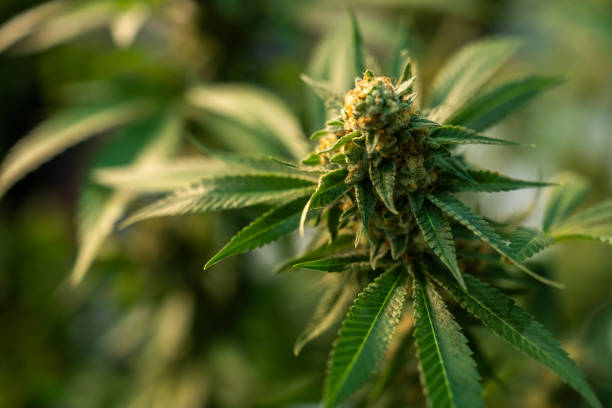
The weed is becoming a norm and acceptable in the world, as it is a mind-altering substance; people start to use it to escape reality. It comes from a cannabis plant, a part of the cannabis plant that is high in tetrahydrocannabinol (THC), which makes a person feel high. It looks like a dried leaf, and it can be green, grey or brown in colour, and the appearance of the weed is similar to that of tobacco. The effect of weed is different and varies from person to person based on their age and the amount of weed. Most people who consume weed feel relaxed and stress-free, but when they take a high level of weed, they start to feel anxious and paranoid.
The weed makes a person feel high because it interacts with the endocannabinoid system in a person's body. It helps a person to regulate their moods, like pleasure, pain, and mood and affects the memory and coordination of a person. The weed has a compound named THC that binds to the endocannabinoid receptors in the brain. Their interaction triggers the release of dopamine, which leads to effects like euphoria. That altered the time perception of people and increased the sensory input, making them feel high.
The weed can affect the mental and physical health of people. It has several potential downsides that are discussed in detail below.
The people who are active users of weed find difficulty in understanding the simplest tasks as their ability to give attention decreases. The memory of a person is also affected, and they do not remember things and forget a major event in their life. The frequency of use and the effectiveness of weed influence the cognitive abilities of a person.
When a person consumes a high dose of weed, they experience complex effects on anxiety, and sometimes this leads to panic. It has the potential to worsen the mental state of a person if they do not control the intake of weed.
The weed impacts the communication skills of a person by impairing their attention and speech patterns, which will result in affecting their interpersonal skills and making their communication pattern less effective. They remain quiet in conversation, which leads them towards social isolation.
The intake of weed results in psychosis, which is a disease that makes a person's personality bipolar and paranoid. The people did not remember who they were and what was real and what was not. They start to see and hear things that do not exist in reality.
The intake of weed has an impact on the development of the brain when a person starts to use it from an early age. THC interferes with brain development, and the ability of attention, memory, and learning of a person is not completely developed, which can lead to mental health issues and psychosis.
It is a mental disorder that affects the ability of a person to think, act, express, and perceive reality and emotions. The high consumption of weed has a higher chance of increasing the risk of schizophrenia in people. Schizophrenia is a complex mental disorder. People who have a genetic disorder and start taking weed in their young years have high chances of developing this disease.
If a person smokes weed, it can irritate their respiratory tract, throat and lungs. The long-term use of weed increases the risk of respiratory diseases like bronchitis, pneumonia, and other illnesses.
According to some studies, it is found that the use of weed is highly associated with the increased risk of using other substances like nicotine and alcohol. It can make a person addicted to these types of substances, and without them, these people become restless.
In conclusion, this evidence demonstrates the downsides of weed that are not commonly discussed by people. The possibility of getting addicted to weed is real, and long-term use of it adversely affects the physical and mental well-being of people. It increases the cognitive disabilities of a person and affects their communication skills.

This post has been authored and published by one of our premium contributors, who are experts in their fields. They bring high-quality, well-researched content that adds significant value to our platform.


